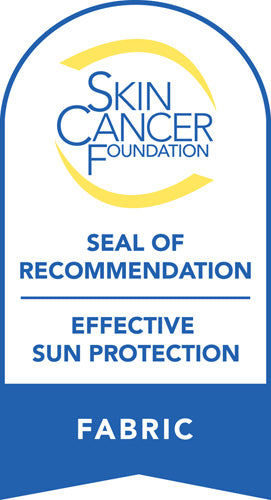A Quick Guide to Preventing Skin Cancer
Are you wondering how to keep your skin protected and cancer free? Read here for a quick guide to preventing skin cancer that is guaranteed to help you.
9,500 people are diagnosed with skin cancer every day, making it the most common form of cancer in America.
Skin cancer is most often caused by too much exposure to ultraviolet (UV) rays, which are byproducts of the sun and some forms of artificial light. If you spend a lot of time outdoors or use tanning beds, you could be susceptible to various forms of skin cancer, which is why it's important to get screening tests early on.
Beyond regular screenings, there are things you can do to avoid it. Preventing skin cancer comes down to being aware of what causes it and adjusting your lifestyle accordingly. In this post, we'll give you a quick guide to help you prevent skin cancer without ruining your lifestyle.
Although the survival rate of skin cancer is high in comparison to other types of cancer, your best bet is to prevent it at all costs. Keep reading and you'll know what you need to do to protect your skin.
Understand Your Risk Level
Before we tell you the things you can do to avoid different types of skin cancer, it's important to discuss risk. Everyone's at risk of developing skin cancer if they decide to throw caution to the wind, but some people are far more genetically predisposed than others.
The most obvious concern is if you've got a family history of skin cancer. If anyone in your family has dealt with it at any point, you need to go that extra mile with the steps we discuss here.
Those with a fair skin complexion with lots of freckles are certainly more at risk, as are people with compromised immune systems. Lastly, if you're a smoker, you're more likely to develop various cancers, skin cancer included.
Wearing Sunscreen All Year
Preventing skin cancer comes down to your ability to stay diligent with your skincare routine. The first thing you need to do is make sure you're wearing sunscreen, not just on those sunny summer days, but all year round.
A broad-spectrum sunscreen that is 30 SPF or higher will do the trick, but you also have to remember to reapply. Put it on 30 minutes before you go outside and reapply at least every 2 hours, and more frequently if anything we discussed above applies to you.
It's important to realize that the sun is an ever-present entity. It's most apparent on sunny days, but it's always there. If you're near water, snow, or sand, the sun's rays are also reflected, making sunscreen even more important.
Always be cognizant of your environment and how the sun could be interacting with it. Covering up is just as important when there's snow on the ground as it is when you're on the beach.
Avoid Sun at Certain Times
The sun's UV rays are at their strongest, according to Johns Hopkins, between the hours of 10 a.m. and 4 p.m. Minimize your sun exposure between these hours and you can avoid the worst of it.
Of course, that's not possible for everyone. If you need to go out again, make sure you're wearing sunscreen, and invest in sunglasses, as well as sun-protective clothing.
No More Sunbathing or Tanning Beds
Whether you do your tanning the old-fashioned way or use a tanning bed facility, you're leaving yourself completely vulnerable to UV rays. Having tanned skin might be aesthetically pleasing to you, but it can have lasting effects on your DNA.
Skin cancer isn't something that occurs spontaneously. It's almost always caused by exposure to UV rays, so the more you allow them unmitigated access to your skin, the more likely it is that you'll develop skin cancer at some point in your life.
It might not be today or tomorrow, but at some point, you may have to reckon with the fact that you've prioritized tanning over keeping your skin healthy.
Wear Protective Clothing
One of the most effective ways to combat skin cancer without altering your lifestyle is by wearing protective clothing. Not only will the right clothing protect you from UV rays on a particularly sunny day, but it'll keep you cool in the heat as well.
It's crucial to get high-quality UV-resistant clothes. At BloqUV, we offer a range of high-performance protective clothing for men, women, and children. Our 50+ UPF BloqTek fabric blocks 98% of UVA/UVB rays from the sun.
Whether you need activewear or leisurewear, we've got you covered and protected. Visit our site to look at all of your options.
Make Healthy Food Choices
Skin cancer isn't only about sun damage. What you put in your body can gradually take a toll on your skin and make it more vulnerable to the sun as well. If you make healthy food choices, eating things that contain plenty of antioxidants, you'll give yourself a much better chance of preventing skin cancer.
Things like beta-carotene, omega-3s, zinc, and vitamin D boost your immune system, while vitamin C contains elements that are toxic to cancerous cells. Vitamin E improves your overall skin condition and lycopene has been shown to reduce the sun's effects.
Pay Attention and Get Regular Screenings
Your actions will help reduce your chances of getting skin cancer, but you need to pay attention as well. Perform regular examinations on your own skin, keeping an eye out for any new abnormalities and reporting them to your doctor ASAP.
You should also be getting regular screenings, especially if you've got a family history of skin cancer, you smoke, or you spend a lot of time outdoors. If caught early by screening, skin cancer is extremely treatable.
Preventing Skin Cancer is Possible
With the right knowledge and a good self care routine, preventing skin cancer can be simple and effective. You don't need to stay inside 24/7 to avoid skin cancer, but you do need to take the right precautions by applying sunscreen on a regular basis and wearing the right type of clothing.
Covering up doesn't mean you have to be uncomfortable in the sun. With BloqUV's protective clothing, you'll get breathable shirts and pants that keep you completely protected from those harmful UV rays.
Check out our line of clothes and accessories and take an important step towards preventing skin cancer today.



